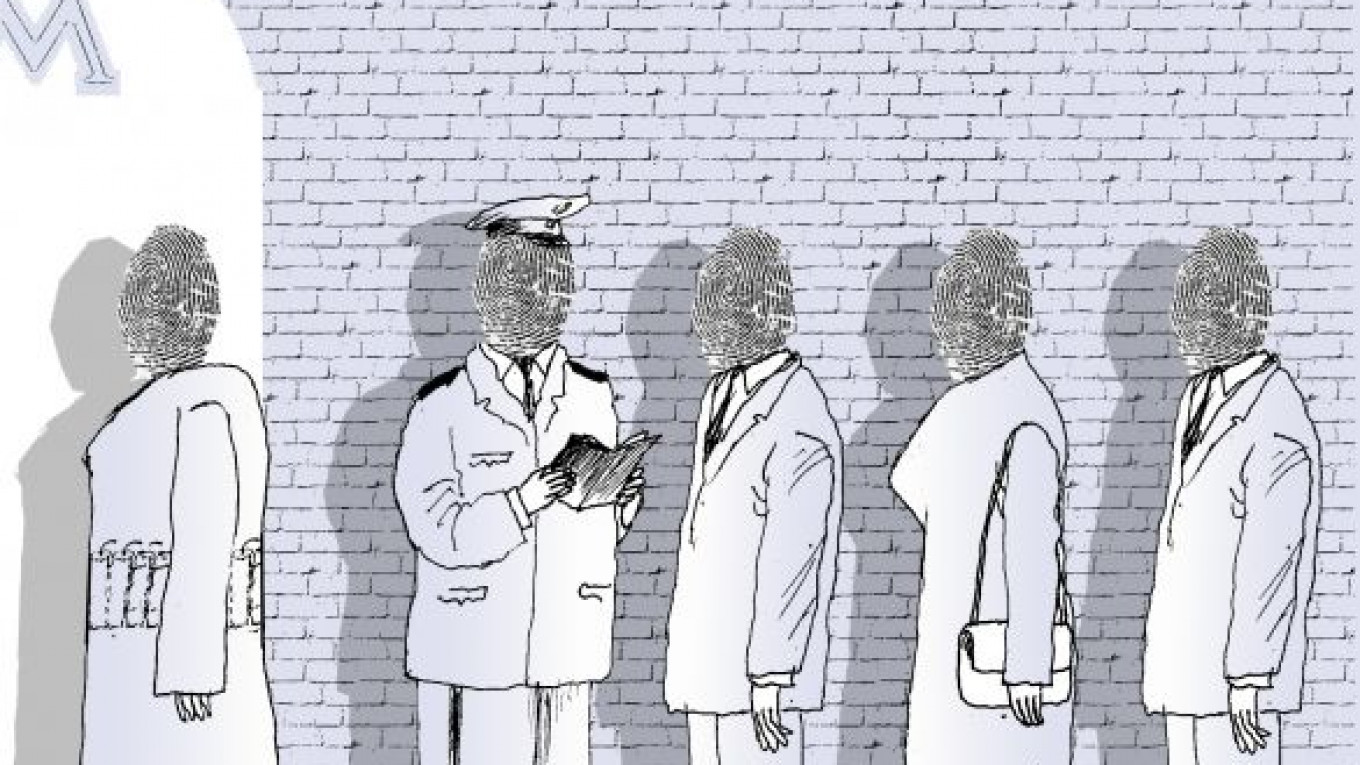Every explanation offered for Monday’s Moscow metro bombings is connected in some way with the North Caucasus. Most refer to the fact that Federal Security Service commandos killed several well-known separatist leaders in the region over the past few weeks. But despite what would seem to be a logical connection, the theory that the Moscow bombings were a revenge killing remains extremely doubtful.
It surely took the terrorists more than a month to prepare for the metro bombings. After all, the organizers had to bring the suicide bombers to the capital, obtain the explosives and sel ect a secret apartment as a safe house. It thus seems clear that the metro bombings were not a reaction to the March killings of separatist leaders as the FSB has claimed.
In fact, the militants began building up suicide bomber units as long as two years ago. Chechen militant leader Doku Umarov announced in April 2009 that the Riyadus Salikhin battalion of suicide bombers created by Chechen warlord Shamil Basayev, who was killed in 2006, had been fully restored. He then repeatedly warned that the jihad would spread to all of Russia. After suicide bombings began in Vladikavkaz, it was clearly only a matter of time before they came to Moscow.
It would be a mistake to assume automatically that Chechens carried out Monday’s bombings. Recall that members of the “Karachayevo-Cherkessia Jamaat” staged metro bombings in 2004. In February 2004, 20-year-old Anzor Izhayev, a Karachay from Karachayevo-Cherkessia, blew himself up in a metro train car near the Avtozavodskaya metro station. And on Aug. 31, 2004, a female suicide bomber standing near the Rizhskaya metro station blew herself up, along with her escort, Nikolai Kipkeyev — also fr om Karachayevo-Cherkessia. Members of the same Jamaat also organized a series of terrorist attacks at bus stops in Voronezh and Krasnodar.
In any case, Moscow bombings represent a fundamental failure of the Kremlin’s strategy for fighting terrorism. Contrary to popular belief, these blasts cannot be attributed to foreign forces such as al-Qaida or other international terrorist organizations. Terrorism in Moscow and the North Caucasus definitely has local roots.
Unfortunately, it is doubtful that Monday’s tragedy will force the government to change its approach to combating terrorism. Although terrorism on Russian soil strikes fear and panic among the people, the same cannot be said for the country’s leaders. Under a strategy that the Kremlin adopted in the mid-2000s for fighting terrorism, the main criteria for evaluating the severity of an attack is the potential threat it poses to political stability, not the number of victims.
As a result, the focus of the government’s war on terrorism is, above all, to deny militants the ability to make the Kremlin look weak. After video showing former Prime Minister Viktor Chernomyrdin and other leaders negotiating with Chechen terrorists in 1995 for the release of hostages in a Budyonnovsk hospital was shown all over the world, the Kremlin vowed not to make the same mistake again.
Separatist leaders adopted a different tactic after the hostage-takings in Moscow’s Dubrovka theater in 2002 and at Beslan School No. 1 in 2004. In the summer of 2004, a large group of militants invaded and temporarily seized control of an entire district in Ingushetia, and a new strategy for combating terrorism was developed to combat this new “guerilla terrorism.” The focus of the new strategy shifted toward preventing coordinated actions by large groups of militants, which requires using Interior Ministry troops. This came at the expense of taking measures to prevent individual suicide attacks, which requires top-notch intelligence and surveillance work — areas in which the FSB is either incompetent or simply has other priorities and doesn’t want to invest its resources in developing these capabilities.
It is obvious that the bombings on the Nevsky Express train in November and the Moscow metro attack will have no impact on political stability in Russia. That is why we can expect almost no substantive change in the Kremlin’s policy on fighting terrorism.
At the same time, it is possible that the authorities will use the Moscow blasts as a pretext for introducing new measures to increase control over society. This may include fingerprinting or creating a new DNA data base on all citizens, which the Investigative Committee suggested — again — within hours of Monday’s attack. Although this rhetoric sounds tough, it would be completely ineffective in preventing future terrorist attacks.
Irina Borogan and Andrei Soldatov are analysts with Agentura.ru, which tracks the security services. A longer version of this article appears on EJ.ru.
A Message from The Moscow Times:
Dear readers,
We are facing unprecedented challenges. Russia's Prosecutor General's Office has designated The Moscow Times as an "undesirable" organization, criminalizing our work and putting our staff at risk of prosecution. This follows our earlier unjust labeling as a "foreign agent."
These actions are direct attempts to silence independent journalism in Russia. The authorities claim our work "discredits the decisions of the Russian leadership." We see things differently: we strive to provide accurate, unbiased reporting on Russia.
We, the journalists of The Moscow Times, refuse to be silenced. But to continue our work, we need your help.
Your support, no matter how small, makes a world of difference. If you can, please support us monthly starting from just $2. It's quick to set up, and every contribution makes a significant impact.
By supporting The Moscow Times, you're defending open, independent journalism in the face of repression. Thank you for standing with us.
Remind me later.


